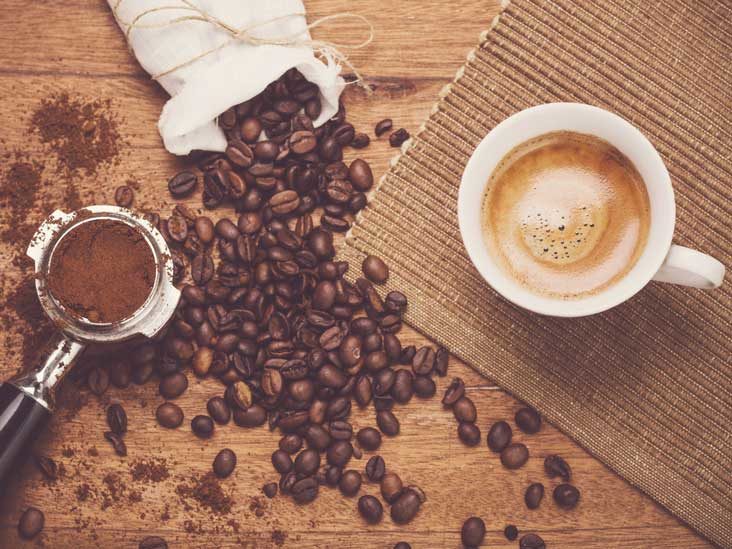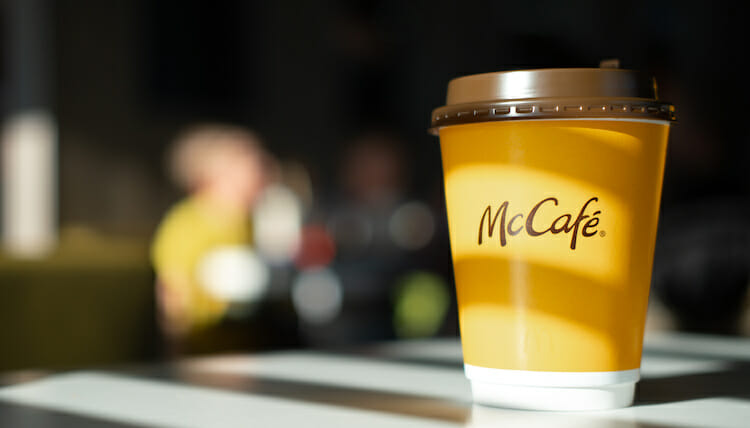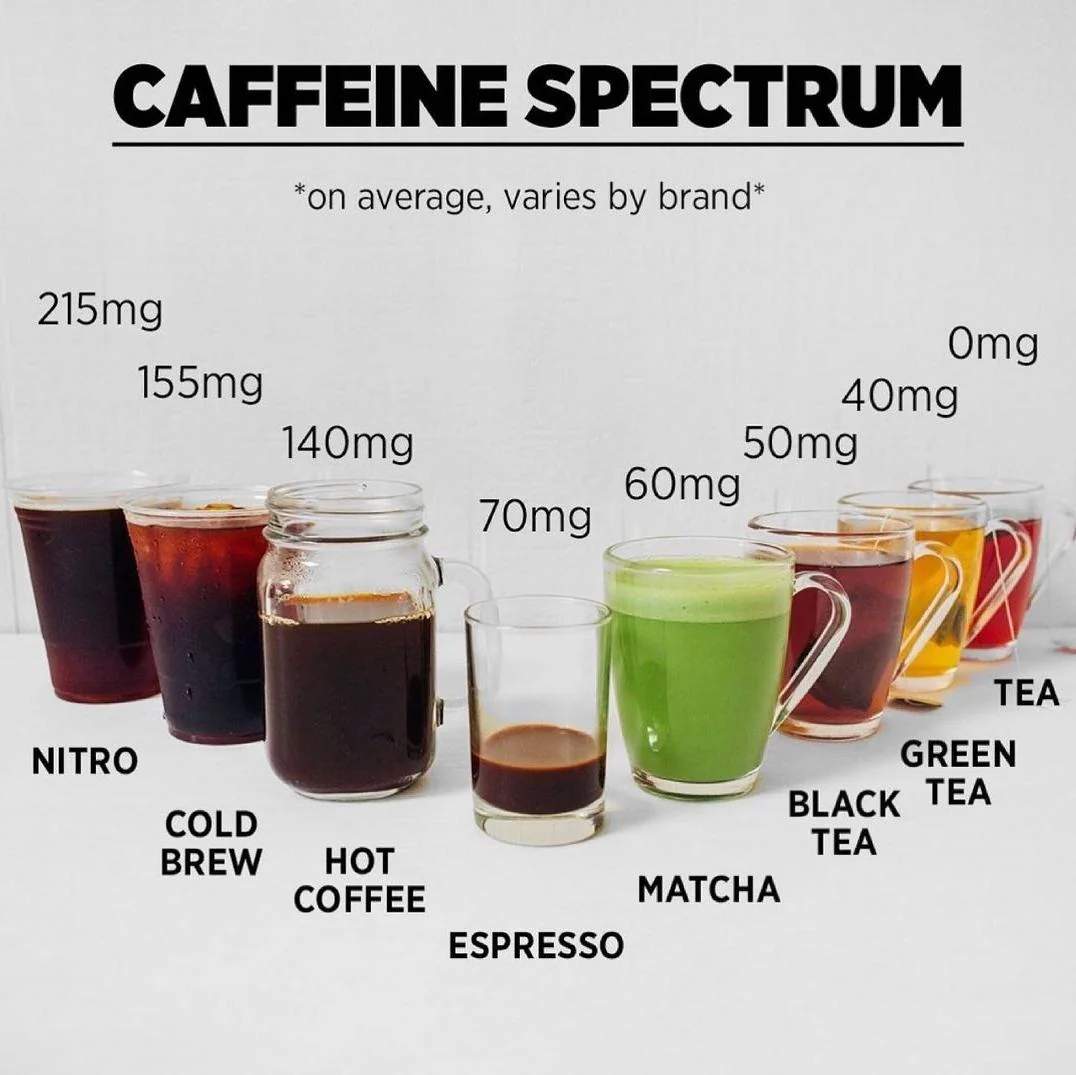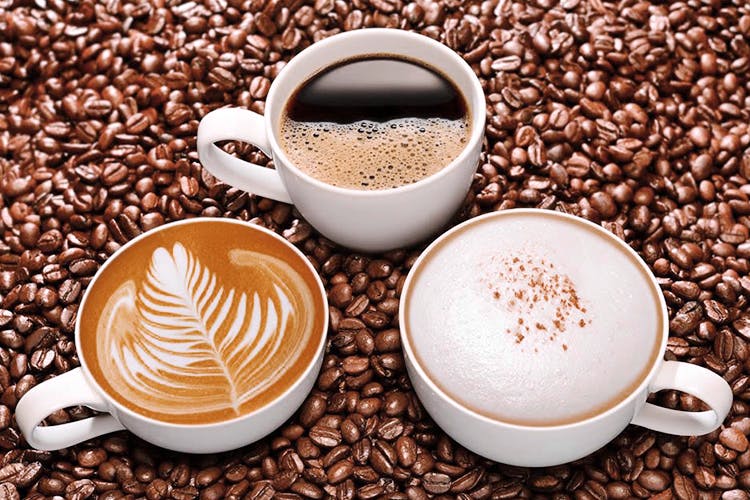The caffeine content of a cup of coffee can vary depending on the type, serving size, and variety of beans used.
Coffee is the primary source of dietary caffeine.
An average cup of coffee typically contains approximately 95 mg of caffeine.
However, caffeine can differ significantly across coffee beverages, ranging from nearly zero to over 500 mg.
Here is a comprehensive guide that provides detailed information about the caffeine content in various types and brands of coffee.
What Factors Affect Caffeine Content?
The amount of caffeine in coffee is influenced by several factors, including:
- Type of coffee beans: Different varieties of coffee beans naturally contain varying levels of caffeine.
- Roasting process: Lighter roasts typically have higher caffeine content than darker roasts, although darker roasts offer a richer flavor.
- Type of coffee: Regular brewed coffee, espresso, instant coffee, and decaf coffee can have significantly different caffeine content.
- Serving size: The caffeine content can vary greatly depending on the coffee volume consumed, ranging from 30–700 ml (1–24 oz).
In summary, the caffeine content in coffee is affected by the type of beans used, the roast style, the brewing method, and the serving size.
How Much Caffeine Is in a Cup of Coffee?

The type of coffee you drink is the primary factor that determines its caffeine content. Here’s a breakdown of different types of coffee and their typical caffeine contents:
Brewed Coffee
This is the most common coffee-making method in the US and Europe. A cup of brewed coffee (8 oz) usually contains around 70–140 mg of caffeine, with an average of about 95 mg.
Espresso
Espresso is made by forcing hot water or steam through finely-ground coffee beans.
Although espresso has more caffeine per volume than regular coffee, a single espresso (about 30–50 ml or 1–1.75 oz) typically contains around 63 mg of caffeine.
Therefore, a double shot would have approximately 125 mg.
Espresso-Based Drinks
Popular coffee drinks like lattes, cappuccinos, macchiatos, and Americanos are made by mixing espresso shots with milk.
Since milk doesn’t contribute additional caffeine, these drinks contain the same amount as straight espresso—around 63 mg for a single serving and approximately 125 mg for a double serving.
Instant Coffee
Instant coffee is made from brewed coffee that has been freeze-dried or spray-dried. It tends to have less caffeine than regular brewed coffee, with one cup containing roughly 30–90 mg.
Decaf Coffee
Despite its name, decaf coffee still contains some caffeine. It can range from 0–7 mg per cup, with the average cup containing about 3 mg.
However, certain varieties may have higher levels depending on factors such as the type of coffee used and the decaffeination process.
An average 8-oz cup of brewed coffee contains about 95 mg of caffeine. A single shot of espresso or an espresso-based drink has around 63 mg of caffeine, while decaf coffee typically contains approximately 3 mg of caffeine per cup.
Are Commercial Brands More Caffeinated?
Certain commercial coffee brands may have higher caffeine content than regular home-brewed coffee.
Coffee shops are known for offering larger cup sizes, ranging up to 700 ml (24 oz). The amount of coffee in these cups is equivalent to approximately 3–5 regular cups.
Starbucks
Starbucks is widely recognized as one of the most prominent coffee shop chains worldwide, offering some highly caffeinated coffee options. Here is an overview of the caffeine content in Starbucks’ brewed coffee and espresso-based drinks:
- Brewed Coffee at Starbucks:
- Short (8 oz): Contains approximately 180 mg of caffeine.
- Tall (12 oz): Contains around 260 mg of caffeine.
- Grande (16 oz): Provides about 330 mg of caffeine.
- Venti (20 oz): Contains roughly 415 mg of caffeine.
- Espresso at Starbucks:
- One shot of espresso: Contains approximately 75 mg of caffeine.
- Espresso-Based Drinks at Starbucks:
- Small-sized espresso-based drinks, such as lattes, cappuccinos, macchiatos, and Americanos, contain a standard amount of 75 mg of caffeine due to the inclusion of a single shot.
- Larger sizes that include two or three espresso shots (16 oz) will have higher caffeine contents, ranging from 150 to 225 mg.
- Decaf Coffee at Starbucks:
- Decaffeinated coffee from Starbucks contains around 15–30 mg of caffeine, depending on the cup size.
In summary, an 8-ounce brewed coffee from Starbucks contains approximately 180 mg of caffeine. A single shot of espresso or any small espresso-based drink contains about 75 mg. An 8-ounce cup of decaf coffee from Starbucks typically contains around 15 mg of caffeine.
McDonald’s

McDonald’s, known for its McCafe brand, serves coffee worldwide. However, they do not standardize or provide official calculations for the caffeine content of their coffee. Here is an estimated breakdown of the caffeine content in McDonald’s coffee:
- Brewed Coffee at McDonald’s:
- Small (12 oz): Approximately 109 mg of caffeine.
- Medium (16 oz): Around 145 mg of caffeine.
- Large (21–24 oz): Roughly 180 mg of caffeine.
- Espresso at McDonald’s:
- Contains about 71 mg of caffeine per serving.
- Decaf Coffee at McDonald’s:
- The amount of caffeine in decaf coffee varies based on the cup size, ranging from approximately 8 to 14 mg.
McDonald’s does not have standardized data for its coffee’s caffeine content. As an estimate, a small cup of brewed coffee from McDonald’s contains around 109 mg of caffeine. Espresso typically has about 71 mg of caffeine, and decaf coffee contains approximately 8 mg (amounts may vary depending on the cup size).
Dunkin Donuts
Dunkin Donuts, a popular chain of coffee and donut shops worldwide, offers various caffeinated beverages. Here is an overview of the caffeine content in their brewed coffee, espresso-based drinks, and decaf coffee:
- Brewed Coffee at Dunkin Donuts:
- Small (10 oz): Contains approximately 215 mg of caffeine.
- Medium (16 oz): Provides around 302 mg of caffeine.
- Large (20 oz): Contains roughly 431 mg of caffeine.
- Extra large (24 oz): Offers approximately 517 mg of caffeine.
- Espresso at Dunkin Donuts:
- A single shot of espresso: Contains about 75 mg of caffeine. This is also the amount you can expect from their espresso-based drinks.
- Decaf Coffee at Dunkin Donuts:
- Decaffeinated coffee from Dunkin Donuts may still contain notable amounts of caffeine. According to one source, a small cup (10 oz) contains around 53 mg, while a large cup (24 oz) contains about 128 mg. These values are comparable to other varieties of regular coffee.
A small cup of coffee from Dunkin Donuts contains approximately 215 mg of caffeine, and a single shot of espresso contains about 75 mg. It’s worth noting that their decaf coffee may contain as much as 53–128 mg of caffeine.
Is Caffeine Something to Worry About?
Coffee is known for its high antioxidant content, and numerous studies suggest that it has health benefits. However, consuming excessive amounts of caffeine can lead to adverse effects such as anxiety, sleep disturbances, heart palpitations, and restlessness.
Most individuals generally do not experience adverse effects when consuming 400–600 mg/day of caffeine. This amount is roughly equivalent to 6 mg/kg (3 mg/lb) of body weight or 4–6 average cups of coffee per day.
It’s important to note that the impact of caffeine can vary significantly from person to person due to genetic differences. Some individuals are susceptible to caffeine, while others may not be affected even by large quantities. Finding the appropriate amount of coffee consumption that suits you best may require personal experimentation.
Caffeine is recommended for daily intake.
The FDA states that for healthy adults, consuming around 400 mg of caffeine usually does not result in any harmful or adverse side effects.
The ideal daily amount of caffeine varies from person to person, as individuals can have different sensitivities to caffeine. Certain medical conditions and medications can increase a person’s sensitivity to the effects of caffeine.
Pregnancy and breastfeeding
According to the American College of Obstetricians and Gynecologists (ACOG), pregnant or nursing individuals can safely consume up to 200 mg of caffeine daily, approximately equivalent to a tiny cup of coffee. It is still advisable for individuals in these situations to consult with their doctor to determine the most suitable daily dose of caffeine for their specific circumstances.
Children and adolescents
The FDA does not provide specific guidelines for caffeine consumption in children, but the American Academy of Pediatrics advises against children and adolescents consuming caffeine.
A systematic review conducted in 2017 suggests that adolescents between the ages of 12 and 18 should consume less than 100 mg of caffeine per day. The review also cautions that caffeine may have a more pronounced effect on children under 12 due to their lower body weight.
The review’s authors conclude that young children generally tolerate 2.5 mg of caffeine per 1 kg of body weight.
Other factors impacting caffeine intake
Several factors may lead a person to limit or avoid caffeine intake. These factors include:
- Acid reflux or GERD: Coffee can increase acidity and worsen heartburn, so individuals with these conditions may need to limit their caffeine intake.
- Overactive bladder or urinary incontinence: Caffeine can exacerbate these conditions, so individuals with them may choose to reduce their caffeine consumption.
- Glaucoma or a history of the condition: Caffeine can potentially increase pressure on the eyes, so individuals with glaucoma may find it necessary to limit their caffeine intake.
- Epilepsy: Caffeine can potentially increase seizures, so individuals with epilepsy might need to avoid or minimize caffeine consumption.
- Smoking or alcohol consumption: Both smoking and alcohol can cause the liver to metabolize caffeine faster. This increased metabolism might lead some individuals to consume higher amounts of caffeine than recommended.
While moderate caffeine consumption is typically not problematic, individuals who consume more than 500 mg of caffeine per day may begin to experience dehydration. Moreover, combining excessive alcohol and caffeine intake can further contribute to dehydration if adequate fluids are not consumed.
Effects of too much caffeine
Moderate consumption of caffeine is generally considered safe for the majority of individuals. However, excessive intake of caffeine can lead to adverse side effects.
Some signs that indicate overconsumption of caffeine include:
- Headaches
- Restlessness or jitteriness
- Nervousness
- Anxiety
- Irritability
- Tremors
- Rapid heartbeat
- Difficulty sleeping or insomnia
- Upset stomach
- Nausea
- Diarrhea
- Frequent urination
- Feelings of unhappiness, also known as dysphoria
Other sources of caffeine
While coffee is widely known as a common source of caffeine, numerous other foods and beverages also contain this chemical.
However, it’s important to note that the FDA does not require manufacturers to disclose the quantity of caffeine in packaged foods, beverages, or dietary supplements.

Apart from coffee, here are some other typical sources of caffeine:
Tea
Tea contains varying amounts of caffeine, generally less than a similar-sized cup of coffee. For example, an 8-oz cup of green tea contains around 29 mg of caffeine, while the same serving size of black tea contains approximately 47 mg.
Soft drinks
Some sodas and fruit-flavored beverages may contain caffeine. An average 12-oz can of cola typically contains about 21 mg of caffeine.
Energy drinks
Energy drinks often have high levels of both caffeine and sugar. The amount varies significantly between brands. For instance, an 8.4-oz can of Red Bull contains approximately 74.8 mg of caffeine.
Chocolate
Chocolate naturally contains caffeine, with darker chocolate having higher levels than milk chocolate. The amount varies based on the cacao content. For example, a 1-oz serving provides around:
45–59% cacao solids: 12 mg
60–69% cacao solids: 24.4 mg
70–85% cacao solids: 22.7 mg
Medications
Some over-the-counter and prescription medications include caffeine to enhance pain relief. Certain products like Menstrual Relief Maximum Strength combine acetaminophen, pyrilamine maleate, and caffeine.
Caffeine pills are also available as an alternative to coffee for those seeking an energy boost.
The amount of caffeine in a cup of coffee can vary based on factors such as brewing method, bean type, and grounds-to-water ratio. An average 8-oz cup of coffee typically contains around 80–100 mg of caffeine, but certain coffee drinks may have higher concentrations.
It’s essential to be aware that excessive caffeine consumption can lead to side effects such as headaches, sleep disturbances, gastrointestinal discomfort, and jitteriness.

